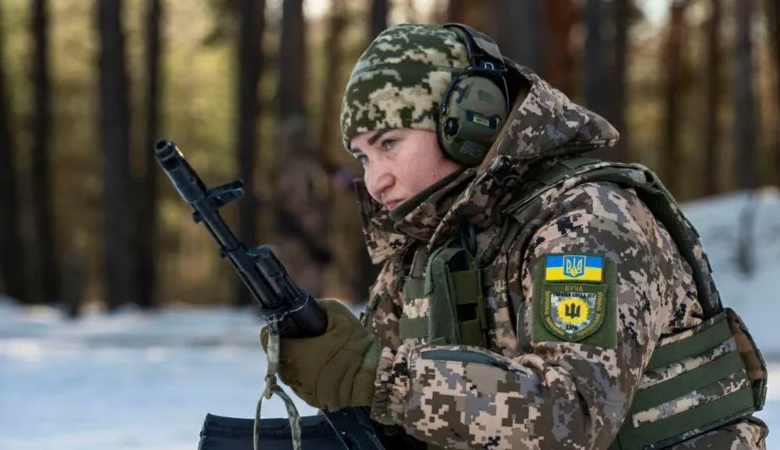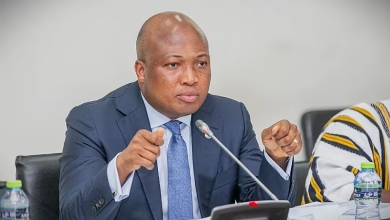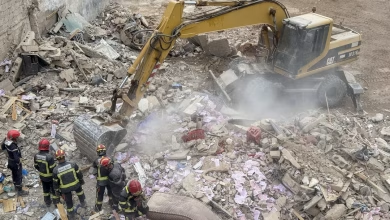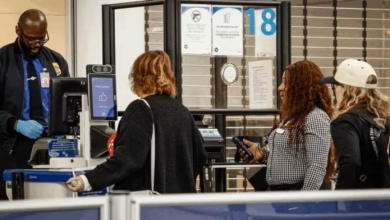UK Announces £450m Military Support Package for Ukraine

- UK Announces £450m Military Aid Package for Ukraine
- UK and Germany Host Meeting to Pressure Putin to End Invasion
- New Funding to Bolster Ukraine's Defences Amid Ongoing Conflict
The UK government has announced an additional £450 million of military aid to Kyiv, as defence officials from 50 nations convene in Brussels to increase pressure on Russian President Vladimir Putin to end his invasion of Ukraine.
UK Defence Secretary John Healey emphasized the importance of continued support for Ukraine, stating, “We must step up to deter Russian aggression by continuing to bolster Ukraine’s defences.”
The aid package includes £350 million provided by the UK, along with supplementary funding from Norway through the UK-led International Fund for Ukraine. It will cover repairs and maintenance for vehicles and equipment previously provided to Ukraine, with £160 million allocated for this purpose.
Additionally, the package includes more than £250 million for radar systems, hundreds of thousands of drones, and anti-tank mines, designed to bolster Ukraine’s front-line capabilities.
Healey stressed the urgency of the collective effort, saying, “We cannot jeopardise peace by forgetting the war, which is why today’s major package will surge support to Ukraine’s front-line fight.”
Speaking at the Ukraine Defence Contact Group meeting in Brussels, Healey underscored the critical importance of 2025 in the ongoing conflict. “2025 is the critical year for the war in Ukraine, and this is a critical moment. Our job as defence ministers is to get urgent military aid into the hands of Ukrainian war fighters,” he added.
Healey urged other nations present to “look harder at what more you can do” in supporting Ukraine.
This funding pledge follows a series of military aid initiatives from the UK. Last month, Prime Minister Sir Keir Starmer announced a £1.6 billion missile deal for Ukraine, alongside a £2.2 billion loan for additional military aid funded by profits from frozen Russian assets.
The aid package has drawn mixed reactions. The Liberal Democrats called the move “small change” compared to what they believe is necessary to counter Putin’s “barbaric war.” Defence spokeswoman Helen Maguire said, “While we welcome any increase in support for Ukraine, this package is small change compared to what’s needed to combat Putin’s barbaric war.”
The meeting, co-chaired by Healey and German Defence Minister Boris Pistorius, marks a shift in leadership since Donald Trump became president in January. Traditionally chaired by the US defence secretary, Healey has now taken over as chair—a sign of the US stepping back from certain European security matters.
US Defence Secretary Pete Hegseth attended Friday’s meeting virtually, alongside Ukrainian President Volodymyr Zelensky.
The gathering followed a Franco-British-led coalition meeting of defence ministers from 30 nations, aimed at establishing a force in Ukraine to secure enduring peace.
While Healey clarified that he does not envision the installation of a peacekeeping force to “separate the currently warring sides down the line of contact,” he noted that strengthening Ukraine’s armies is central to the plan.
EU foreign policy chief Kaja Kallas said discussions are needed to determine the role of such a force. “If we have such boots on the ground, so what is the goal? Are they monitoring, are they deterring, are they keeping the peace, are they fighting? I mean what could be the goal? And that’s not really clear,” Kallas told BBC Radio 4’s Today program.
Trump, meanwhile, has reiterated his claim that he could end the war within 24 hours. However, efforts to negotiate peace have seen limited success. In March, Putin rejected Trump’s call for a month-long ceasefire—agreed to by Kyiv—offering only to halt attacks on energy infrastructure.
Despite setbacks, US efforts to broker peace are ongoing. Trump’s special envoy Steve Witkoff reportedly arrived in Russia on Friday to meet Putin, according to Axios.
Meanwhile, fighting has intensified along the front line, with Ukrainian military officials reporting a 30% increase in assaults over the past week. Kyiv believes Russia is preparing for a major renewed offensive, with tens of thousands of troops gathered along the border.
On Thursday, Russian drone attacks injured at least four people in Ukraine’s Kharkiv region. Ukrainian drones were intercepted in Russia’s Kursk and Belgorod regions, according to Russian state media.
Earlier this week, Zelensky acknowledged for the first time that Ukrainian troops are active in Russia’s Belgorod region. Battles have also extended to the Kursk region, though Russia has since regained most of the territory.






